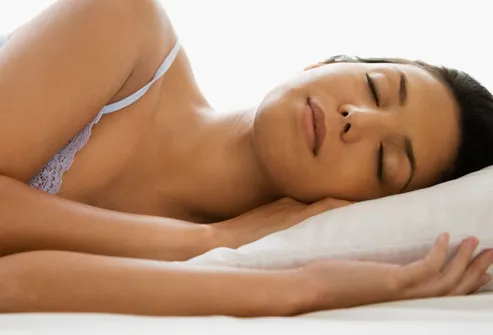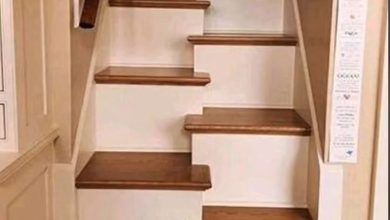Power Down
The soft blue glow from a cell phone, tablet, or digital clock on your bedside table may hurt your sleep.
Tip: Turn off TVs, computers, and other blue-light sources an hour before you go to bed. Cover any displays you can’t shut off.

Nix Naps
You’ll rest better at night. But if you have to snooze while the sun’s up, keep it to 20 minutes or less. Nap in the early part of the day.
Tip: Overcome an afternoon energy slump with a short walk, a glass of ice water, or a phone call with a friend.

Block Your Clock
Do you glance at it several times a night? That can make your mind race with thoughts about the day to come, which can keep you awake .
Tip: Put your alarm clock in a drawer, under your bed, or turn it away from view.

Try a Leg Pillow for Back Pain
Your lower back may not hurt enough to wake you up, but mild pain can disturb the deep, restful stages of sleep. Put a pillow between your legs to align your hips better and stress your lower back less.
Tip: Do you sleep on your back? Tuck a pillow under your knees to ease pain.

Put Your Neck in ‘Neutral’
Blame your pillow if you wake up tired with a stiff neck. It should be just the right size — not too fat and not too flat — to support the natural curve of your neck when you’re resting on your back. Do you sleep on your side? Line your nose up with the center of your body. Don’t snooze on your stomach. It twists your neck.
Tip: Use good posture before bed, too. Don’t crane your neck to watch TV.

Set Your Body Clock
Go to sleep and wake up at roughly the same time every day, even on weekends. This routine will get your brain and body used to being on a healthy snooze-wake schedule. In time, you’ll be able to nod off quickly and rest soundly through the night.
Tip: Get out in bright light for 5 to 30 minutes as soon as you get out of bed. Light tells your body to get going!

Eat Right at Night
Don’t eat heavy foods and big meals too late. They overload your digestive system, which affects how well you sleep. Have a light evening snack of cereal with milk or crackers and cheese instead.
Tip: Finish eating at least an hour before bed.

Rethink Your Drink
Alcohol can make you sleepy at bedtime, but beware. After its initial effects wear off, it will make you wake up more often overnight.
Tip: Warm milk and chamomile tea are better choices.

Take a relaxing bath or shower
A relaxing bath or shower is another popular way to sleep better.
Studies indicate that they can help improve overall sleep quality and help people — especially older adults — fall asleep faster. Alternatively, if you don’t want to take a full bath at night, simply bathing your feet in hot water can help you relax and improve sleep
*Highly respected database from the National Institutes of Health
A warm bath, shower, or foot bath before bed can help you relax and improve your sleep quality.

Watch What Time You Sip
Want to lower your odds of needing nighttime trips to the bathroom? Don’t drink anything in the last 2 hours before bed. If you have to get up at night, it can be hard to get back to sleep quickly.
Tip: Keep a nightlight in the bathroom to minimize bright light.

Seal Your Mattress
Sneezes, sniffles, and itchiness from allergies can lead to lousy shut-eye. Your mattress may hold the cause. Over time, it can fill with mold, dust mite droppings, and other allergy triggers. Seal your mattress, box springs, and pillows to avoid them.
Tip: Air-tight, plastic, dust-proof covers work best.

Lower the Lights
Dim them around your home 2 to 3 hours before bedtime. Lower light levels signal your brain to make melatonin, the hormone that brings on sleep.
Tip: Use a 15-watt bulb if you read in the last hour before bed.

Hush Noise
Faucet drips, nearby traffic, or a loud dog can chip away at your sleep. And if you’re a parent, you might be all too aware of noises at night long after your children have outgrown their cribs.
Tip: Use a fan, an air conditioner, or a white noise app or machine. You can also try ear plugs.

Free Your Mind
Put aside any work, touchy discussions, or complicated decisions 2 to 3 hours before bed. It takes time to turn off the “noise” of the day. If you’ve still got a lot on your mind, jot it down and let go for the night. Then, about an hour before you hit the sack, read something calming, meditate, listen to quiet music, or take a warm bath.
Tip: Even 10 minutes of relaxation makes a difference.
Use Caution with Sleeping Pills
Some sleep medicines can become habit-forming, and they may have side effects. Ideally, pills should be a short-term solution while you make lifestyle changes for better Zzzz’s. Ask your doctor what’s OK.

source: webmd.com, healthline.com






